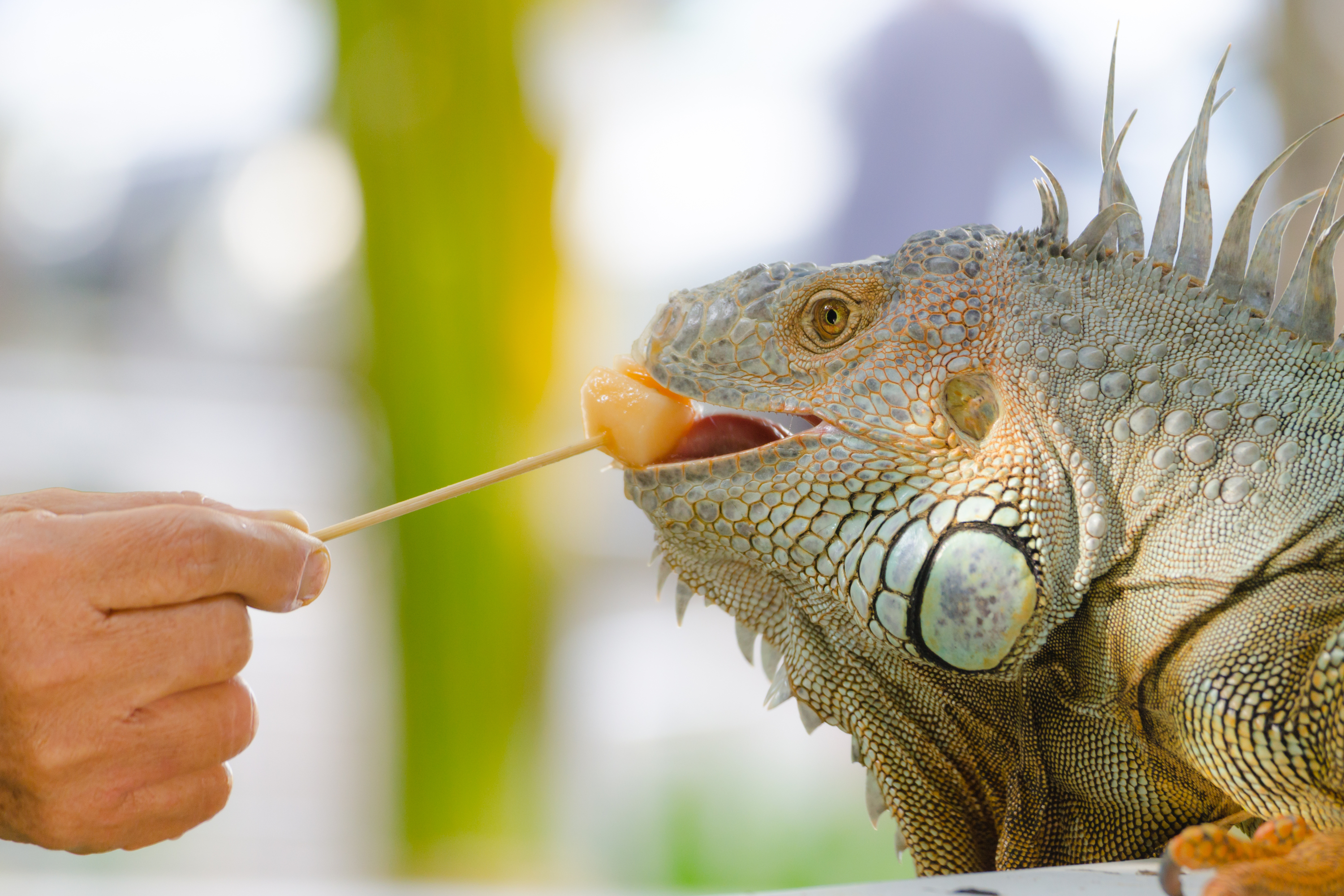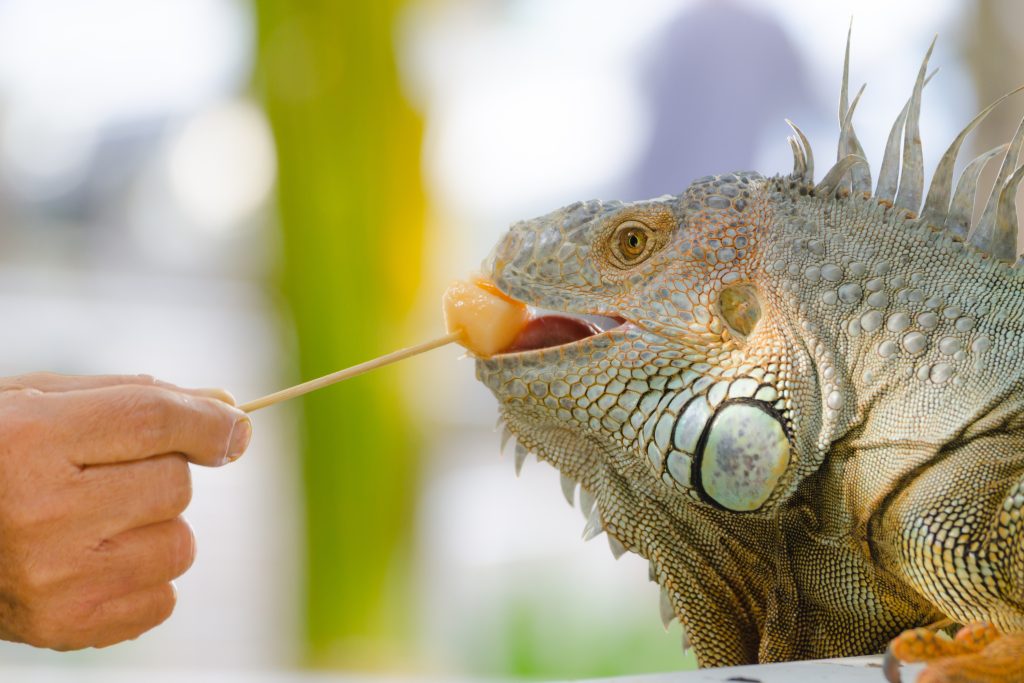Iguanas are fascinating creatures that make great pets. They are social, intelligent, and have a distinct personality. However, as an owner, it can be concerning when your iguana stops eating. There are several reasons why your iguana may not be eating, and it’s essential to identify the cause so you can take appropriate action.
One reason your iguana may not be eating is a lack of appetite due to illness or stress. Another reason could be related to their diet, as iguanas require a specific balance of nutrients. In this article, we will explore the various reasons why your iguana may not be eating and provide you with tips on how to encourage them to start eating again.
There could be several reasons why your iguana is not eating. Some common causes include stress, illness, improper temperature or lighting, and digestive issues. It’s important to address the underlying issue as soon as possible to ensure your iguana’s health. If you are unsure of the cause, consult with a reptile veterinarian for advice and treatment options.

Why is My Iguana Not Eating?
If you have an iguana as a pet, you may have noticed that it is not eating as much as it should. It can be a cause for concern, but before you panic and rush to the vet, there are several reasons why an iguana may stop eating. This article will explore the most common reasons why your iguana may not be eating and what you can do to help.
Lack of Appetite
Iguanas are known for their voracious appetites, and any change in their eating habits can be a sign that something is wrong. A lack of appetite can be caused by a number of things, including stress, illness, or a change in environment. Your iguana may also be going through a period of brumation, which is similar to hibernation in other animals.
If your iguana is not eating, the first thing you should do is check its environment. Make sure the temperature and humidity levels are correct, and that there are no sources of stress, such as loud noises or other pets. If the environment is not the problem, you should take your iguana to the vet for a checkup.
Digestive Issues
Another reason why your iguana may not be eating is if it is experiencing digestive problems. Iguanas have sensitive digestive systems, and if they eat something that does not agree with them, it can cause them to stop eating. Symptoms of digestive issues in iguanas include regurgitation, diarrhea, and bloating.
To help your iguana with digestive issues, you should first identify what is causing the problem. It could be that your iguana is eating the wrong type of food, or it could be a parasite or bacterial infection. Your vet can help you determine the cause and recommend a treatment plan.
Dental Problems
Dental problems are another common reason why iguanas stop eating. Iguanas have teeth that grow continuously throughout their lives, and if they are not properly maintained, they can become too long and cause pain and discomfort. This can make it difficult for your iguana to eat, leading to a decreased appetite.
To prevent dental problems in your iguana, you should provide it with things to chew on, such as branches or toys. You should also regularly check your iguana’s teeth and take it to the vet if you notice any signs of dental issues.
Stress
Stress can also cause your iguana to stop eating. Iguanas are sensitive animals, and changes in their environment or routine can cause them to become stressed out. This can lead to a decreased appetite and other health problems.
To reduce stress in your iguana, you should provide it with a stable environment and routine. Make sure it has a comfortable and secure enclosure, and try to keep its schedule consistent. You should also avoid handling your iguana too much, as this can cause stress.
Illness
Finally, illness is another common reason why iguanas stop eating. If your iguana is experiencing other symptoms, such as lethargy or respiratory problems, it may be sick. In this case, you should take your iguana to the vet as soon as possible.
To prevent illness in your iguana, you should provide it with a healthy diet and keep its enclosure clean and free of bacteria. You should also keep an eye out for any signs of illness, such as changes in behavior or appearance.
In conclusion, if your iguana is not eating, it can be a cause for concern, but it does not necessarily mean that it is sick. By identifying the underlying cause and taking appropriate action, you can help your iguana get back to its normal appetite and remain healthy.
Frequently Asked Questions
Why is My Iguana Not Eating?
Iguanas are known to be great eaters, but there are times when they may refuse to eat. Here are some reasons why your iguana might not be eating:
Firstly, stress and anxiety can affect an iguana’s appetite. Changes in their environment, such as a new home or a new family member, can cause them to feel uneasy and not want to eat. Additionally, improper temperature and lighting in their enclosure can also lead to stress.
Secondly, illness and digestive problems can also cause an iguana to not eat. If your iguana is displaying other symptoms such as lethargy, diarrhea or vomiting, then it is important to take them to a vet for a check-up.
What Should I Do if My Iguana is Not Eating?
If your iguana is not eating, it is important to take action quickly. Here are some steps you can take:
Firstly, make sure that the temperature and lighting in their enclosure is appropriate for their needs. Iguanas require a basking spot with a temperature of around 95-100 degrees Fahrenheit and UVB lighting.
Secondly, offer a variety of foods to encourage your iguana to eat. Iguanas are herbivores and require a diet rich in leafy greens, fruits, and vegetables. Offer a variety of foods to see if they have a preference.
If your iguana still refuses to eat, it is important to take them to a vet for a check-up. They may require medication or further treatment to get their appetite back.
MY IGUANA WONT EAT ! NEED HELP!
In conclusion, if your iguana is not eating, there can be a number of reasons why. It could be due to stress, illness, or simply not liking the food you’re providing. It’s important to observe your iguana’s behavior and consult with a veterinarian if the problem persists.
One way to reduce stress in your iguana is to provide a comfortable and spacious enclosure with proper lighting and temperature. Additionally, make sure you’re providing a varied and nutritious diet that includes plenty of leafy greens, vegetables, and fruits.
If your iguana is still not eating, it’s important to seek veterinary care as soon as possible. The vet can perform a thorough examination and run tests to determine if there is an underlying health issue. Remember, a healthy and well-fed iguana is a happy iguana.


